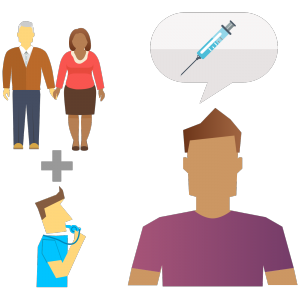Know Your Role
Attitudes towards doping are formed in adolescence. This makes the social support provided by coaches and parents pivotal in determining athlete doping propensity.
An athlete’s doping propensity is influenced crucially by parents and coaches

In Practice – Coaches
Increased coach influence
- Relationship growth through adolescence
- PED deterrent

“He [coach] puts so much effort in to it. It makes me want to do well for him – to show him that his effort has paid off”
“Coaches have influenced my decision massively”
“Always there – not just as a football coach, but as someone who would guide you through things as well”
“if I had the relationship I have with my coach and he said to me, ‘This will help’ – because I’ve trusted him for so long and everything he’s said has worked for me, I might use”
In Practice – Parents
Importance of family
- Biggest support structure
- Secure attachments
- Personal development

“Family has always been my biggest support system… they are massive for me… I value what the have to say about how I’ve played”
“Probably been shaped by the way I was brought up”
Absence of strong attachments and social support make an athlete more likely to dope
For tips on having more open and honest discussions, play the audio
Summary »
